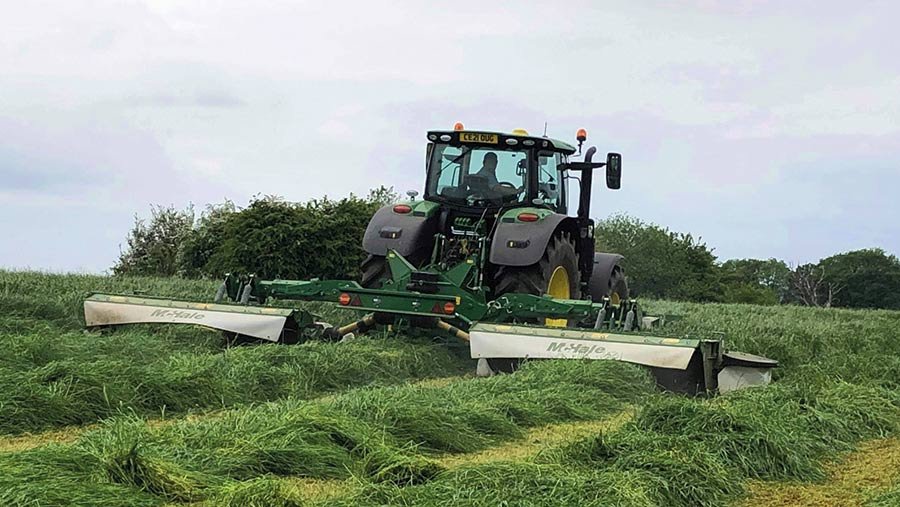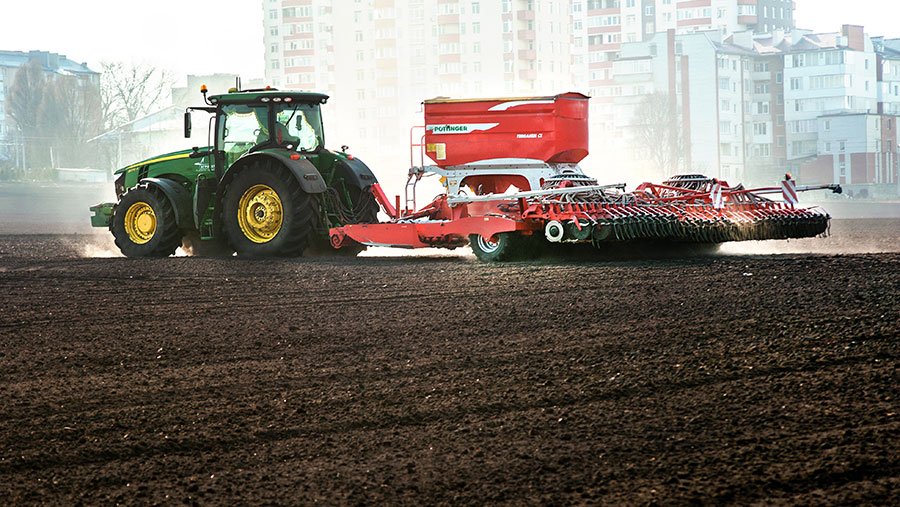Farmers are at the epicentre of reducing carbon emissions in rural areas, says a new report from the Royal Agricultural Society of England (Rase).
The society launched its Farm of the Future: Journey to Net Zero report at the Low Carbon Agriculture show on 8 March.
The study outlines how farm businesses are able to make effective changes to their enterprises to reduce emissions.
Knowledge exchange, financial support during transition and science and innovation are identified as the three key areas where farmers can be supported as businesses move towards decarbonisation.
Food production remains the key focus, but clear objectives are needed to maintain levels of production while also reducing inputs and becoming carbon neutral, it says.
See also: Agricultural transition – advice and case studies
Phillip Gready, Rase chairman, said: “Land is both finite and precious, and ensuring that it is managed in both a productive and sustainable way is absolutely critical if we are going to address the three major global issues of food security, climate change and biodiversity loss.
“For transformation to happen, farmers need practical guidance on the decarbonisation options based on currently available and emerging technologies, along with independent advice and technology demonstration sites. To improve carbon capture, they need access to farm-level emissions accounting and benchmarking tools.”
Lord Deben, chairman of the UK’s Climate Change Committee, said within the report that we need to learn how to feed the world without costing the earth.
“Food production is the first of all public goods that farmers offer. But it has to be done in a way that also leads to net zero,” Lord Deben said.
Stephen Briggs, head of soil and water at Innovation for Agriculture, said the agricultural landscape is massively changing at the moment. Improvements can be made through the use of cover crops, anaerobic digestion for energy generation, reducing the time period when soils are bare and minimising soil movement through improved cultivation practices.
Red diesel was a key talking point at the event, with high prices putting it in the spotlight.
Mike Woollacott, managing director of low-carbon consultancy Greenwatt Technology, suggested it was possible to imagine that at some stage in the future the red diesel subsidy for agriculture could be removed as part of the climate change approach and a move away from fossil fuels.
Greener machinery
Case New Holland and the Small Robot Company both showcased machinery at the event.
Case NH has been investing heavily in its methane tractor offerings. Its T6.180, the world’s first tractor powered completely by methane, is due to launch in the UK this year.
Alistair Walshaw, innovation manager at Case New Holland Industrial, said using methane captured on farm can help to dramatically reduce emissions.
The full report and sector-specific content can be found on the RASE website (PDF).











